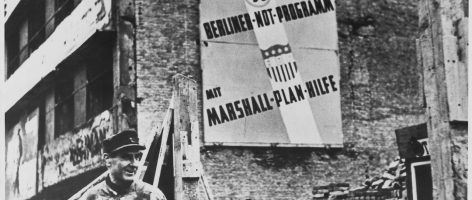Hanna Wang, DAAD/AGI Research Fellow
AGI is pleased to welcome Hanna Wang as a DAAD/AGI Research Fellow for June and July 2018. Ms. Wang is currently a doctoral student in Economics at the University of Pennsylvania. …

Jörn Quitzau, AGSR Fellow
AGI is pleased to welcome Jörn Quitzau as an AGI/GMF Fellow with the American-German Situation Room in Washington, DC, in April 2018. Joern Quitzau (PhD, University of Hamburg) is a Senior …
Recent Authors
AGI provides knowledge, insights, and networks as tools to solve the challenges ahead.
Support Our Work
The Resurgence of Anti-Semitism: German vs. American Responses
Anti-Semitism in Germany Germany has a rocky history with anti-Semitism—to say the least. After WWII, reconciliation with Jewish populations became a large part of Germany’s foreign and domestic policy, and …

Civil Society Can Lead the Way
Germans and Americans have a great many important common values and common interests, yet their respective national narratives—how they define their history and place in the world today—differ considerably. Despite …
‘Real American’ immigrants fight to preserve the best of the U.S.
In 1975, the Communist Pathet Lao emerged victorious in a civil war that lasted over 20 years. More than 300,000 Laotians fled to neighboring Thailand, where they lived in refugee …

A Survivor’s Luck: Reflections on Berlin and Shanghai
Harry Katz is lucky.[1] As a man who has had a life-long love of numbers, he knows the odds were stacked against him from the beginning: He was born a Jew …








